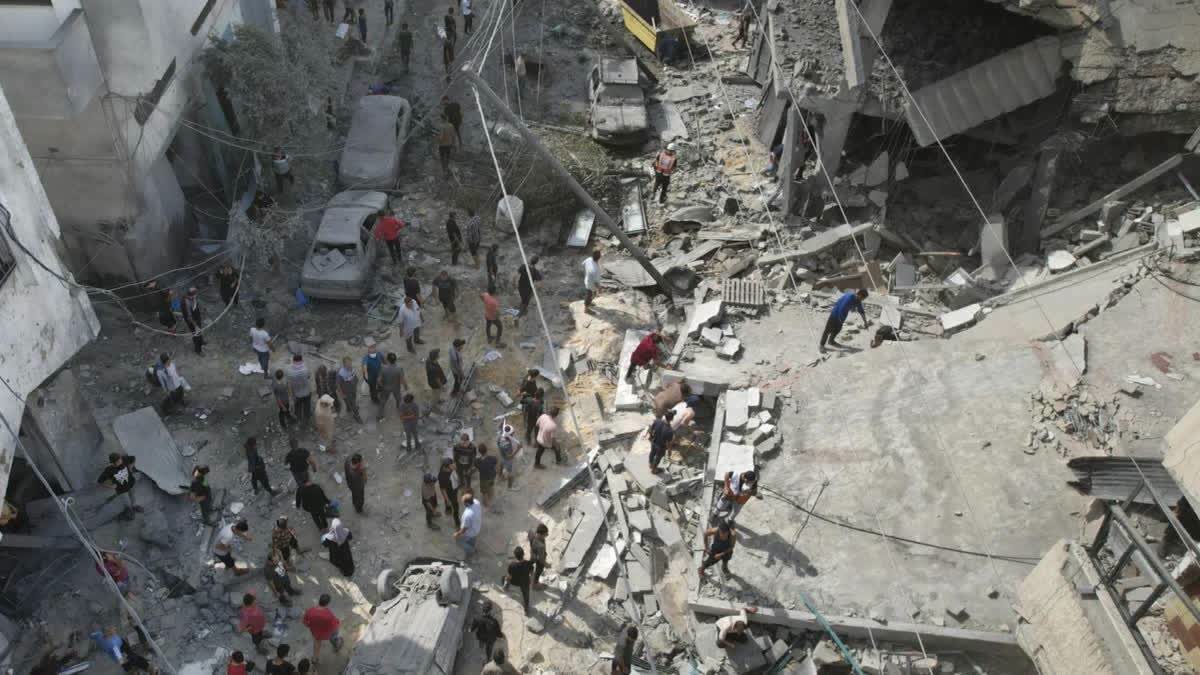New Delhi: Ever since Hamas carried out the deadly attacks on October 7 that claimed over 1,400 Israeli lives, Israel has vowed to carry out a ground invasion of Gaza and wipe out the Islamist militant group. However, even after more than two weeks of the Hamas attacks, the ground invasion is yet to take place.
Israel has reportedly agreed to a request from the US to temporarily delay its planned Gaza ground incursion to give Washington more time to deploy additional air defence systems to protect its troops in the region. According to a report in The Times of Israel, the Pentagon is rushing to deploy roughly a dozen air defence systems to protect troops in Iraq, Syria, Kuwait, Jordan, Saudi Arabia, and the United Arab Emirates (UAE) from missile fire. Iran-backed proxies have carried out at least 13 attacks since the outbreak of the war between Israel and Hamas, injuring at least two dozen troops in Syria in one attack and 10 US soldiers in Iraq in another attack.
However, the US request apart, Israel has other issues to contend before launching the ground offensive. First is the challenge of carrying out urban warfare in a densely populated area. Civilian casualties will tarnish Israel’s image and Israel has ordered all civilians in north Gaza to evacuate to the south of the narrow strip of land. This has led to a huge humanitarian crisis.
Another challenge is dealing with the hostages that Hamas had taken from Israel during the October 7 attacks. Though Hamas has released four of the hostages, it still has over 200 of them. Nobody is sure where they are being kept. If the hostages are being kept in the maze of underground tunnels that Hamas has constructed, it will be all the more difficult for Israel to free them.
According to reports, the US is also concerned that Israel does not have achievable military goals for its planned ground invasion in Gaza. While Washington has urged Jerusalem to think about the broader endgame of the operation, Israeli officials have said that they are now only focused on eradicating Hamas and is not thinking about what will happen later.
But the fact of the matter is that, despite all speculations, Israel will definitely carry out the ground invasion in Gaza. “Israel is preparing for a prolonged war,” S Samuel C Rajiv, Associate Fellow in the Manohar Parrikar Institute of Defence Studies and Analyses and a specialist on West Asian issues told ETV Bharat. “This is going to be a long drawn out affair.”
Rajiv said that Israel is currently consulting with US military advisors sent by Washington before launching the ground operation. Among the American advisors is Lt. Gen. James Glynn, who previously helped lead special operations forces against the Islamic State and served in Fallujah, Iraq, during some of the most heated urban warfare there.
“What the Israelis are looking to do is flatten out as much of Gaza as possible through air strikes before launching the ground operation,” Rajiv said. At the same time, he said that it will be difficult for Israel to wipe out Hamas entirely. “What process Israel will adopt to wipe out Hamas is not clear,” he said.
Following the Hamas attacks, Israel mobilised 3,60,000 of its reservists from across the world. These, along with the around 150,000 regular troops, gives Israel a combined troop strength of half a million.
Now comes the question: what about the hostages? Some Israeli ministers had said to the effect that the hostages will be a small price to pay given the huge number of Israeli lives lost during the Hamas attacks. However, they had come in for much criticism for their comments.
“Israel is trying to secure the release of the hostages through international mediators like the Qataris,” Rajiv said. “But Hamas is not going to free them and give up the only leverage they have.”
Rajiv said that this will be the third ground operation that Israel will conduct in Gaza. In the first ground invasion in 2009, Israel lost 10 of its soldiers. In the second such invasion, 66 IDF soldiers were killed. In both the previous operations, thousands of Palestinians lost their lives.
Also Read: Pentagon rushes defences, advisers to Middle East as Israel's ground assault in Gaza looms
“Once the ground invasion is launched, it will be difficult to prevent collateral damage,” Rajiv said.
Also Read: US concerned Israel's ground war in Gaza 'lacks' achievable goals



